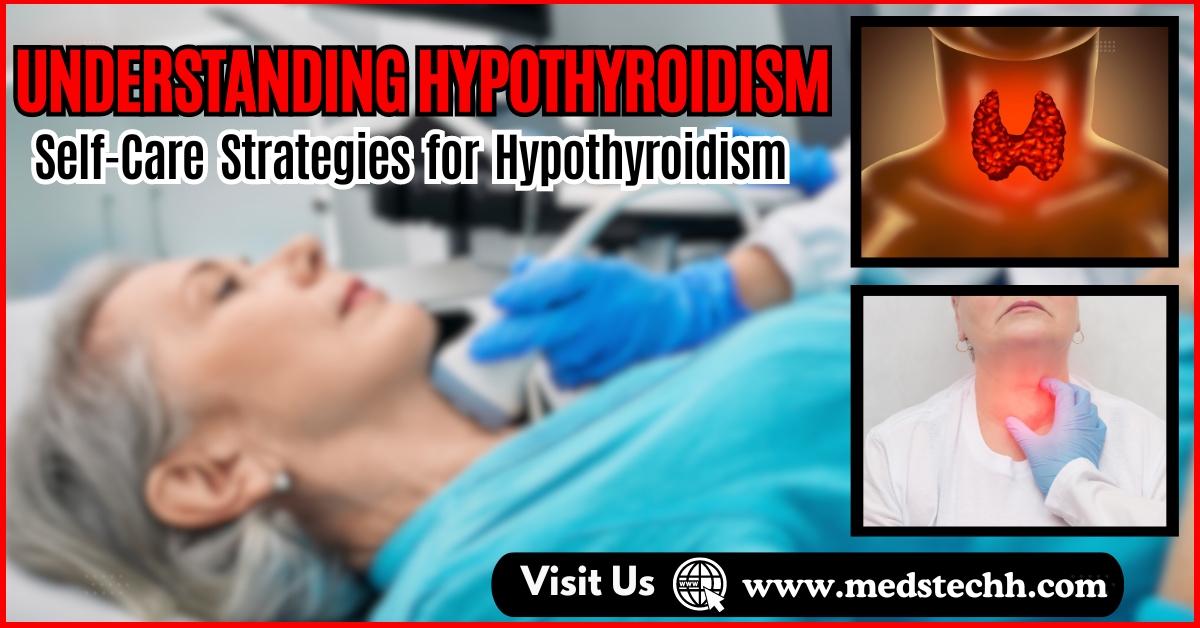Understanding Hypothyroidism:
Hypothyroidism is a prevalent endocrine disorder characterized by the thyroid glands insufficient production of thyroid hormones. This condition can affect metabolic processes, leading to a range of symptoms and health issues. The thyroid gland, located in the front of the neck, plays a crucial role in regulating the body’s metabolism, energy production, and hormonal balance.
What is Hypothyroidism?
Hypothyroidism, also referred to as underactive thyroid disease, is a condition in which the thyroid gland fails to produce sufficient thyroid hormones to meet the body’s requirements. The thyroid gland, located in the neck, plays a crucial role in regulating metabolism, energy generation, and overall bodily functions through the hormones it secretes: thyroxine (T4) and triiodothyronine (T3).
Types and Categories:
- Primary Hypothyroidism:
- Primary hypothyroidism is the most common type, resulting from dysfunction within the thyroid gland itself. This can be due to autoimmune diseases, iodine deficiency, or medical treatments affecting the thyroid.
- Secondary Hypothyroidism:
- Secondary hypothyroidism occurs when the pituitary gland fails to produce enough thyroid-stimulating hormone (TSH), which regulates thyroid hormone production. This type is less common and often related to pituitary gland disorders.
- Congenital Hypothyroidism:
- Congenital hypothyroidism is present at birth and can lead to serious developmental issues if not treated promptly. Newborn screening programs are crucial for early detection and treatment.
- Subclinical Hypothyroidism:
- Subclinical hypothyroidism is a milder form where thyroid hormone levels are within normal range but TSH levels are elevated. This condition may not present obvious symptoms but can progress to overt hypothyroidism.
Symptoms and Signs:
Common Symptoms:
- Fatigue and Weakness: Persistent tiredness and lack of energy are hallmark symptoms.
- Weight Gain: Unexplained weight gain despite no changes in diet or activity.
- Cold Intolerance: Increased sensitivity to cold temperatures.
- Dry Skin and Hair: Coarse, dry skin, and hair loss or thinning.
- Constipation: Slowed digestive processes leading to constipation.
Uncommon Symptoms:
- Depression: Mood fluctuations, including episodes of depression, can occur.
- Memory Problems: Struggling to focus and experiencing memory challenges.
- Hoarseness: Alterations in vocal tone or hoarseness.
- Muscle Cramps: Frequent muscle cramps and stiffness.
Severe Symptoms:
- Myxedema: Severe hypothyroidism can lead to myxedema, characterized by swelling of the skin and tissues.
- Heart Issues: Increased cholesterol levels and heart problems, such as bradycardia.
- Goiter: Enlargement of the thyroid gland, visible as swelling in the neck.
Causes and Risk Factors:
Several factors can cause hypothyroidism, including:
- Autoimmune Disorders: Hashimoto’s thyroiditis is the most common cause. The immune system attacks the thyroid gland, impairing its ability to produce hormones.
- Iodine Deficiency: Iodine is crucial for the synthesis of thyroid hormones. A deficiency of iodine in your diet can result in hypothyroidism.
- Medications: Certain drugs like that are available can interfere with thyroid function.
- Radiation Therapy: Treatments for cancers of the head and neck can damage the thyroid gland.
- Thyroid Surgery: Removal of part or all of the thyroid gland can result in hypothyroidism.
- Congenital Hypothyroidism: Some infants are born with a defective thyroid gland or no thyroid gland at all.
- Pituitary Disorders: Tumors or other issues with the pituitary gland can lead to secondary hypothyroidism.
Diagnosis of Hypothyroidism:
Hypothyroidism is diagnosed through a combination of clinical evaluation and laboratory tests. These include:
- Medical History and Physical Exam: Evaluating symptoms and checking for physical signs like dry skin, swelling, and slow heart rate.
- Blood Tests: Thyroid Function Test (TFT). Measuring levels of TSH (thyroid-stimulating hormone) and thyroid hormones (T4 and T3). High TSH and low T4 levels typically indicate hypothyroidism.
- Antibody Tests: Identifying autoimmune thyroiditis by detecting thyroid peroxidase antibodies (TPO antibodies).
Complications of Untreated Hypothyroidism:
- Cardiovascular Issues: Untreated hypothyroidism can lead to high cholesterol and increased risk of heart disease.
- Mental Health Problems: Depression and cognitive decline are common in untreated hypothyroidism.
- Fertility and Pregnancy Complications: Hypothyroidism can cause fertility issues and complications during pregnancy, such as preeclampsia and preterm birth.
Treatment Options:
Medication:
- For best medication of hypothyroidism consult with your doctor. Hypothyroidism is a manageable condition.
Lifestyle Adjustments:
- Dietary Changes: Including iodine-rich foods and managing other nutritional deficiencies.
- Regular Exercise: Helps boost metabolism and manage symptoms.
- Alternative Therapies
- Herbal Supplements: Some herbs like ashwagandha and bladderwrack are believed to support thyroid function.
- Acupuncture: May help alleviate some symptoms of hypothyroidism.
Diet and Nutrition for Managing Hypothyroidism:
- Foods to Eat: Nutrient-rich foods like lean meats, vegetables, fruits, and whole grains support overall health.
- Foods to Avoid: Certain foods can interfere with thyroid function, including soy products, cruciferous vegetables, and high-sugar foods.
- Supplements: Iodine, selenium, and zinc supplements can be beneficial, but excessive intake should be avoided.
Lifestyle Changes for Managing Hypothyroidism:
- Regular Exercise: Exercise helps combat weight gain and fatigue.
- Stress Management: Techniques like yoga and meditation can help manage stress and anxiety, which affects thyroid function.
- Sleep Hygiene: Quality sleep is crucial for overall health and managing symptoms.
Preventive Measures:
- Iodine-Rich Foods: Including seafood, dairy, and iodized salt.
- Selenium and Zinc: Essential for thyroid function, found in nuts, seeds, and meats.
- Regular Screening: Especially important for those with risk factors such as family history or previous thyroid issues.
- Stress Management: Persistent stress can affect thyroid function. Practices such as meditation and yoga can be advantageous.
Self-Care Strategies for Hypothyroidism:
Managing hypothyroidism involves more than just taking medication. Lifestyle modifications and self-care techniques can also be beneficial:
- Balanced Diet: Maintain a diet abundant in fruits, vegetables, lean proteins, and whole grains. Ensure adequate iodine intake but avoid excessive iodine, which can worsen thyroid function.
- Regular Exercise: Physical activity can help combat fatigue, improve mood, and maintain a healthy weight.
- Medication Adherence: Take your thyroid medication consistently and as prescribed, ideally on an empty stomach for better absorption.
- Monitor Symptoms: Keep track of any changes in your symptoms and report them to your healthcare provider.
- Regular Check-ups: Regular visits to your healthcare provider to monitor your condition and adjust treatment as necessary.
Conclusion:
Hypothyroidism is a manageable condition with the right knowledge and approach. By understanding its types, symptoms, causes, and treatment options, you can take proactive steps towards maintaining your health. Remember, regular monitoring and a healthy lifestyle are key to living well with hypothyroidism.




I’m always looking forward to your posts.
I really appreciate the depth of information you’ve provided here. It’s clear that you’ve put a lot of thought and effort into this post.